The Protective Disclosures Act is effective from the 1st of January 2023 and is of particular interest to employers who have over 50 employees. It transposes the EU Directive on the protection of persons who report breaches of Union law. It also overhauls the statutory framework for the protection of whistle-blowers.
The Protected Disclosures Act 2014 provides a statutory framework under which workers who raise concerns about potential wrongdoings in their workplace are protected from penalisation or other sanction from their Employer. The Act was introduced to give protection to all workers who make a protected disclosure which includes Employees, contractors, agency workers, and trainees. The Act sets out the way a worker may make a disclosure to their Employer or other responsible person, to a prescribed person, to the Minister or to a legal adviser.
A new Office of the Protected Disclosures Commissioner will be established in the Office of the Ombudsman to support the operation of the new legislation and will:
- Receive and redirect, as appropriate, protected disclosures made to prescribed persons under section 7 of the Act of 2014.
- Support Ministers who receive protected disclosures under section 8 of the Act of 2014 by carrying out an initial assessment of the disclosure and making recommendations as regards actions for follow-up.
In cases where a suitable authority cannot be identified within the prescribed timeframe, follow-up directly on disclosures referred to the Office.
The following should be noted:
- An obligation on all private sector Organisations with 50 or more Employees to develop formal channels and procedures for their Employees to make protected disclosures. This already applied to the public sector(2014).
- The scope of the Act extends to volunteers, unpaid trainees, board members, shareholders, members of administrative, management or supervisory bodies and job applicants.
- The protections for workers are to be strengthened through reversal of the burden of proof in civil proceedings concerning allegations of retaliation against whistle-blowers.
- The new Act makes references to interpersonal grievances outlining that these are not to be considered a relevant wrongdoing and should be dealt with through internal procedures.
- Interestingly, the Act says there is no obligation to accept and follow-up on anonymous reports, but an Employer may choose to do so. It also clarifies that a worker who makes a disclosure by way of an anonymous report, and who is subsequently identified and penalised for having made a protected disclosure, is entitled to the protections contained in the Act.
Employers and prescribed persons designated to receive protected disclosures under the Act will be subject to an obligation to:
- Acknowledge receipt of the protected disclosure within seven days.
- Diligently follow-up on the information contained in the protected disclosure.
- Provide feedback to the reporting person on the actions taken or envisaged to be taken as follow-up within three months following an initial assessment.
- Communicate to the whistle-blower the outcome of investigations triggered by the protected disclosure.
